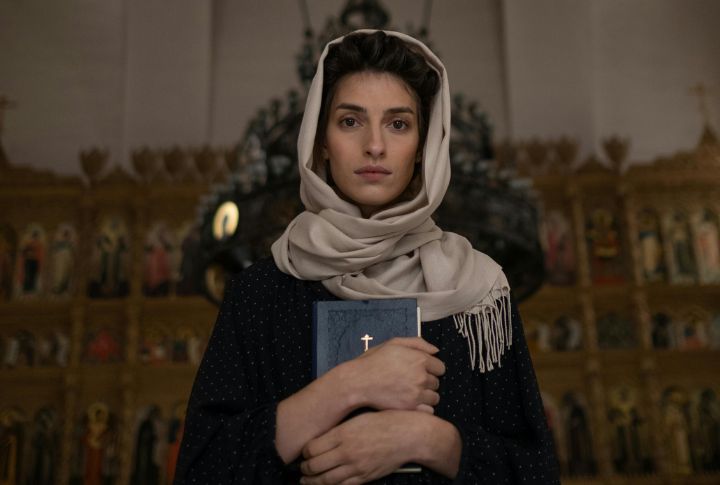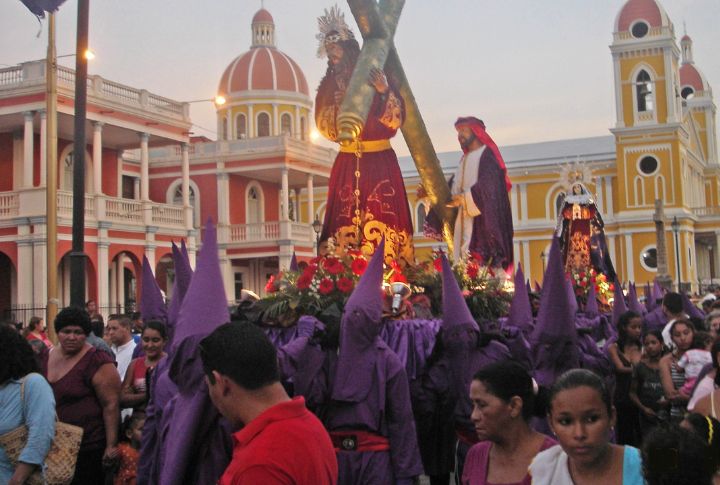
Traditions slip into daily life so easily that most people repeat them without pausing to ask how they started. A small gesture here, a repeated phrase there, and suddenly the habit feels ancient. Curious about the hidden stories tied to these familiar actions? Step in and see what your routine has been hiding.
Covering The Head With A Scarf Or Veil During Prayer
The habit of covering the head during prayer feels familiar in many churches, yet its roots sit in the earliest Christian communities. A passage in 1 Corinthians 11 linked a woman’s covered head to modest behavior and respect. Another part mentioned angels, while older writings treated an uncovered head as shameful.
Walking In Circular Processions Around Shrines Or Altars
A circular walk around a sacred structure may look simple, yet many religions treat this motion—called circumambulation—as a powerful act of devotion. Hindus circle temples clockwise to show respect. Muslims complete seven circuits around the Kaaba during Hajj. Tibetan Buddhists walk around stupas to gain merit. The purpose often feels deeper than participants realize in the moment.
Using Prayer Beads Or Rosaries
Prayer beads may look decorative, but they serve as a counting guide for repeated prayers in several religions. Catholics use the rosary, a sequence in which each bead marks a set of prayers. The name means “rose garden.” Even Islamic misbaha strands usually have 99 beads corresponding to the names of Allah.
Making The Sign Of The Cross Before Meals Or Travel
Many Christians make the sign of the cross before eating or starting a journey, but what does this really signify? Well, the motion touches the forehead, chest, then both shoulders to form a cross and call on the Holy Trinity. Eastern traditions move from top to bottom, while Western believers follow the opposite order.
Fasting On Specific Holy Days

Holiday fasting holds a deeper meaning than everyday discipline. In Christianity, Lent invites reflection across forty days leading into Easter, shaping a season of humility and renewal. Judaism centers Yom Kippur on a twenty-five-hour fast that expresses atonement and spiritual honesty. However, each tradition uses fasting to mark sacred time with intention rather than routine.
Sprinkling Or Consuming Holy Water
Place a bowl of blessed water near a doorway, and countless hands reach for it instinctively. Christians use holy water during baptisms or blessings to invite protection. Hindu tradition also holds water from the Ganges River in high regard because it plays a central role in purification.
Placing Offerings Of Food Or Flowers At Temples
Step inside a temple and you might notice plates of fruit or clusters of flowers near a sacred image. These items serve a purpose. Hindus offer them to seek blessings or express gratitude. Buddhists use flowers to show how quickly life fades. Some Christian groups even maintain their own tradition of offerings.
Kissing Or Touching Sacred Objects (Icons, Statues, Relics)
The simple act of touching a sacred object may feel automatic. Christian worshippers honor icons, painted images of holy figures, through a kiss. Hindu temples welcome a hand placed on a murti, a sacred statue representing a deity. Followers often repeat these gestures without knowing how deeply the symbolism once shaped them.
Lighting Candles At Altars Or Shrines
Someone might light a candle at an altar simply because everyone else does, yet the flame once signaled devotion, remembrance, and divine presence. Christian worship uses candles to honor saints or mark sacred moments. Some believe the rising flame carries prayers upward. In Hindu practice, you will also find a lit lamp as something that pushes away darkness.
Chanting Or Repeating Ritual Phrases In Services
Certain services sound unified the moment voices rise together. Catholic worship includes short responses spoken or sung in one rhythm. Buddhist monks recite sutras, sacred teachings in Pali or Sanskrit, for spiritual merit. In Islamic prayer, the phrase “Allahu Akbar” means “God is greatest.” People still follow these phrases long after their origins fade.

